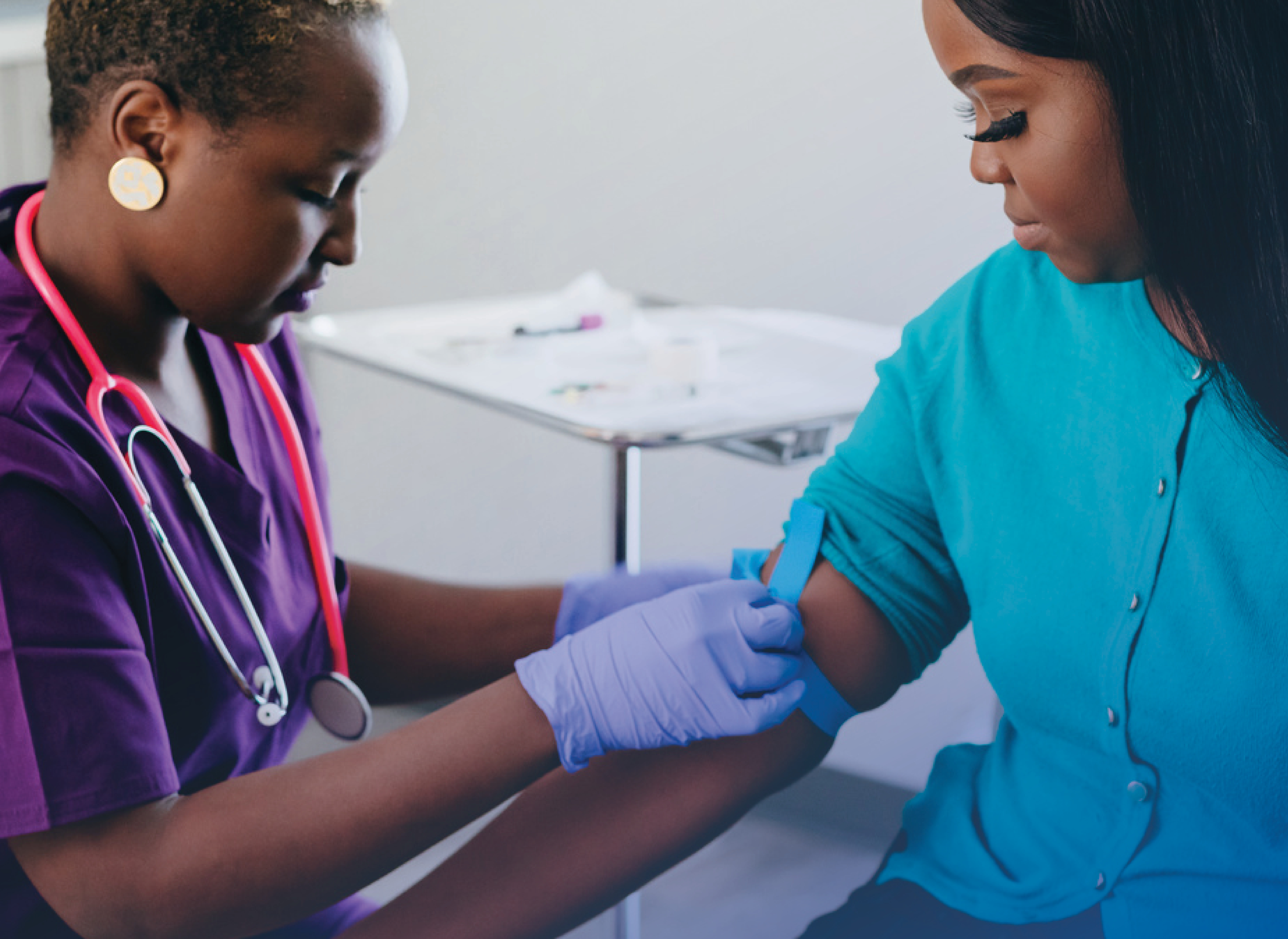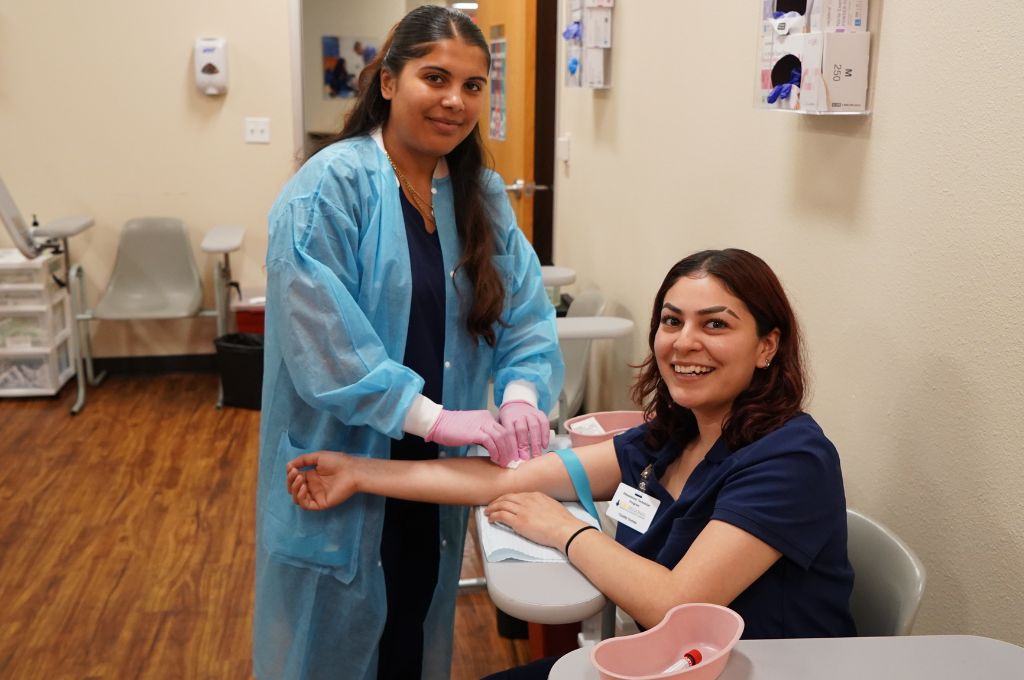Phlebotomy school vs Other Healthcare Paths: Key Differences Explained
Phlebotomy school vs Other Healthcare Paths: Key Differences Explained
Blog Article
The Course to Qualification: Understanding the Phlebotomy Training Program Trip and Its Importance
As you take into consideration the course to accreditation in phlebotomy, it's crucial to comprehend the role you'll play in healthcare. Your training will certainly cover necessary abilities, from blood collection methods to patient interaction.

The Function of Phlebotomists in Healthcare
Phlebotomists play an essential duty in the health care system, acting as the important web link between patients and crucial diagnostic screening. You'll carry out blood attracts, guaranteeing examples are gathered properly and safely. Your proficiency aids in diagnosing clinical conditions, keeping an eye on health, and assisting therapy decisions.
In your day-to-day interactions, you'll require to develop count on with people, making them feel comfy throughout what could be a demanding experience. You are accountable for labeling and dealing with examples thoroughly to avoid contamination or mistakes, which could affect examination results.
Past this, you'll typically work together with doctors and nurses, communicating essential information regarding people' conditions. Your role is essential in keeping the workflow in healthcare settings, making sure prompt and accurate results. By grasping your abilities, you add meaningfully to client treatment, making you an essential part of the medical group. Embracing this responsibility is essential to your success as a phlebotomist.
Review of Phlebotomy Training Programs
When exploring phlebotomy training programs, you'll discover different kinds created to fit various schedules and learning styles. Each program helps you develop necessary abilities like blood collection and person communication. Recognizing these options is key to selecting the best path for your career.
Sorts Of Training Programs
Several kinds of training programs are readily available for those aiming to become skillful in phlebotomy. You can pick from certificate programs, which typically last a few months and concentrate on crucial abilities. There are likewise diploma programs that provide an even more complete education, often lasting approximately a year. If you're trying to find a deeper understanding, an associate level in an associated area may be the right fit. On-line programs offer adaptability for those balancing job or family dedications, enabling you to research at your very own speed. In addition, some health centers and centers supply on-the-job training programs, offering sensible experience while you discover. Whatever course you choose, each program intends to equip you with the needed skills for an effective phlebotomy career.

Secret Skills Created
Understanding phlebotomy calls for a collection of crucial abilities that are developed through comprehensive training programs. Furthermore, communication skills are fundamental; you'll require to communicate with patients, clarify treatments, and put them at convenience. Each of these skills is essential for your success as a qualified phlebotomist, making you an important asset in any type of healthcare setup.
Secret Elements of a Phlebotomy Program
In a phlebotomy training course, you'll concentrate on important subjects that prepared for your future occupation. You'll participate in hands-on training that allows you to apply what you have actually learned in real-world setups. Both the curriculum and functional experience are essential for your success as a phlebotomist.
Curriculum Review
While going after a phlebotomy training course, you'll run into a curriculum developed to furnish you with basic skills and understanding. Phlebotomy school. This educational program usually consists of makeup and physiology, concentrating on the circulatory system and comprehending blood parts. You'll also find out about various kinds of blood collection approaches, including venipuncture and capillary leak methods
Furthermore, infection control and safety protocols are necessary elements, guaranteeing you understand how to maintain a clean and sterile setting. You'll examine patient communication, stressing interaction and empathy, which are crucial for easing individual anxiousness.
Hands-On Training Experience
Obtaining hands-on experience is an important component of your phlebotomy training course. This sensible training allows you to apply what you've discovered in a real-world setup, improving your abilities and confidence. You'll practice venipuncture methods, learn just how to manage different kinds of samplings, and get acquainted with the equipment made use blog of in the field. Under the guidance of seasoned trainers, you'll refine your abilities, ensuring you're planned for any type of situation you could deal with.
In addition, you'll obtain the chance to engage with clients, which is essential for creating your communication skills. This mix of technological proficiency and social abilities is crucial for your success as a qualified phlebotomist. Ultimately, hands-on training is where theory fulfills practice, strengthening your understanding and readiness for accreditation.
Accreditation and Licensing Demands
Prior to you can start your job in phlebotomy, it is crucial to understand the accreditation and licensing demands that differ by state. Many states need phlebotomists to hold a qualification from an acknowledged company, such as the National Phlebotomy Association or the American Society for Professional Pathology. These accreditations typically include passing an examination that examines your understanding and abilities in the field.
In enhancement to certification, some states have particular licensing demands. You might require to finish a certain number of hours in medical method, send evidence of training, or undergo a background check. It is very important to investigate your state's laws to make certain you meet all required criteria.
Staying notified regarding these demands not just aids you safeguard a position however likewise boosts your credibility as an expert. By satisfying these demands, you'll be well on your way to a successful occupation in phlebotomy.
Hands-On Training and Practical Experience
Hands-on training and sensible experience are crucial components of your phlebotomy education, as they enable you to apply theoretical expertise in real-world scenarios. During your training, you'll take part in supervised venipuncture, discover correct methods, and end up being knowledgeable about numerous blood collection tools. This straight participation is important for developing your confidence and honing your abilities.
You'll work closely with skilled professionals who can assist you through the subtleties of individual interaction and example handling. Each method session not only strengthens your understanding but additionally prepares you for the hectic environment of medical care settings.
Additionally, many programs integrate medical turnings, enabling you to experience varied settings, from medical facilities to outpatient facilities. This exposure aids you adapt to various difficulties and patient demands, ensuring you're well-prepared for your future duty. Embrace these opportunities, as they're necessary to coming to be an experienced and caring phlebotomist.
Challenges Dealt With During Training
While getting hands-on experience is crucial, it's crucial to identify the challenges that can emerge throughout your phlebotomy training. Additionally, grasping the abilities needed for blood draws takes practice; you may struggle with method at first.
Time management can likewise be a difficulty, as balancing theory, sensible sessions, and individual dedications try these out can feel challenging. You might face varying learning paces among your peers, leading to sensations of insecurity if you think you're dropping behind. Lastly, adjusting to the various personalities of teachers can be challenging, as each might have a distinct mentor design.
Recognizing these barriers early on can prepare you for success and assist you create resilience throughout your training journey.
Profession Opportunities After Certification

As you acquire experience, you could also think about focusing on areas like pediatric or senior citizen phlebotomy, dealing with particular person needs. Some phlebotomists choose to progress their careers by becoming laboratory technicians or seeking more education and learning in health care fields.
In addition, your accreditation can bring about roles in training or monitoring new phlebotomists, enabling you to share your understanding. With the medical care industry continually expanding, your abilities will certainly always be in need, paving the method for a stable and fulfilling profession. Embrace the opportunities awaiting you!
Regularly Asked Questions
What Is the Regular Period of a Phlebotomy Training Training Course?
Phlebotomy training courses commonly last around four to eight weeks. You'll participate in hands-on technique, classroom instruction, and on the internet discovering. Completing this training prepares you for qualification and a rewarding occupation in healthcare.
Are Online Phlebotomy Courses Available?
Yes, on-line phlebotomy training courses are readily available. They provide flexibility and ease, allowing you to research at your own pace. Just verify the program is recognized to fulfill certification demands and acquire important skills for your career.
Just How Much Does Phlebotomy Training Usually Price?
Phlebotomy training commonly costs in between $700 and $2,500, depending upon the program and area. You should take into consideration elements like program length, included materials, and hands-on experience when selecting the right training for you.
What Are Common Requirements for Phlebotomy Training?
Usual prerequisites for phlebotomy training typically include a high institution diploma or GED, immunizations, and a background check. Some programs might likewise call for fundamental medical care understanding or go to these guys qualifications, guaranteeing you're planned for hands-on training.
Can I Function While Completing My Phlebotomy Training?
Yes, you can work while finishing your phlebotomy training. Several trainees balance tasks with their researches, however make sure to manage your time properly to guarantee you meet both work and training commitments effectively.
Report this page